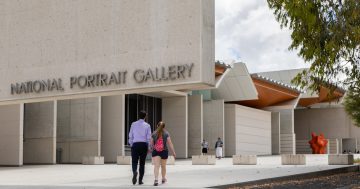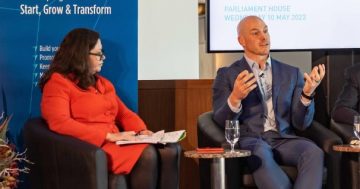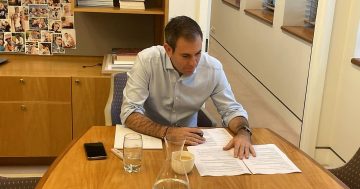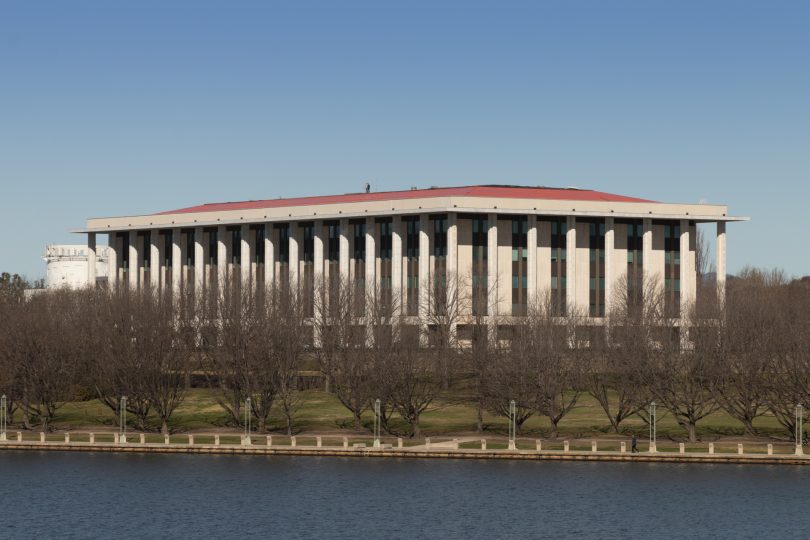
The National Library of Australia will receive $5.4 million, as well as extra support for its Trove portal. Photo: Dominic Giannini.
Canberra public servants have benefited from a COVID-19 boost to APS staffing levels, but the increase will be shortlived with the Federal Government announcing in last night’s budget a commitment to shrink the workforce back to 2006-07 levels over the next four years.
The budget also committed extra money for national institutions, including $6 million over two years for the Australian Electoral Commission (AEC) to design and install a public exhibition space in the Museum of Australian Democracy, and to upgrade the National Electoral Education Centre (NEEC) located in Old Parliament House.
In one-off 2020-21 allocations, the National Library of Australia gets $5.4 million, the National Gallery of Australia $4.5 million, National Museum of Australia $3.9 million, National Film and Sound Archive of Australia $2.5 million and the National Portrait Gallery of Australia $1.2 million.
The government is also providing $31.2 million over four years to assist cultural agencies with capital works, storage and digitisation projects, and support the National Library’s free online portal, Trove.
APS numbers will increase to more than 170,000 in 2020-21, up on last year’s figure of 166,762. Staff number peaked at nearly 180,000 in 2013. In 2006-07, staff numbered 167,596.
Finance Minister Mathias Cormann announced in the Budget papers that the staffing increase will be temporary, in line with the government’s economic support measures, and emphasises the government’s focus on private-sector job creation.
”Public sector staffing is not a substitute for private employment and our focus is on supporting job creation through private investment and economic growth as part of our JobMaker Plan,” he said.
”The temporary uplift in Commonwealth ASL [average staffing levels] will last as long as necessary over an appropriate transitional period to support programs that help Australians in need and back business recovery.”
Recognising the growing reliance on contractors, the government has introduced new reporting rules for spending on contracts and consultancies, and the Department of Finance will establish a whole of Australian Government procurement panel for consultancy services.
Both Chief Minister Andrew Barr and the public servants’ union attacked the Federal Government’s approach to public sector employment.
Mr Barr said the ACT Government would have to continue shouldering the burden of job creation in the Territory over the next two years.
”While there doesn’t appear to be significant job cuts in this budget for the Australian Public Service in the ACT, there are no signs that there will be growth in permanent roles over the coming years,” he said.
”This global health and economic crisis has demonstrated the value of good and effective government – and that role should not be diminished by ideological dogma against the public service.”
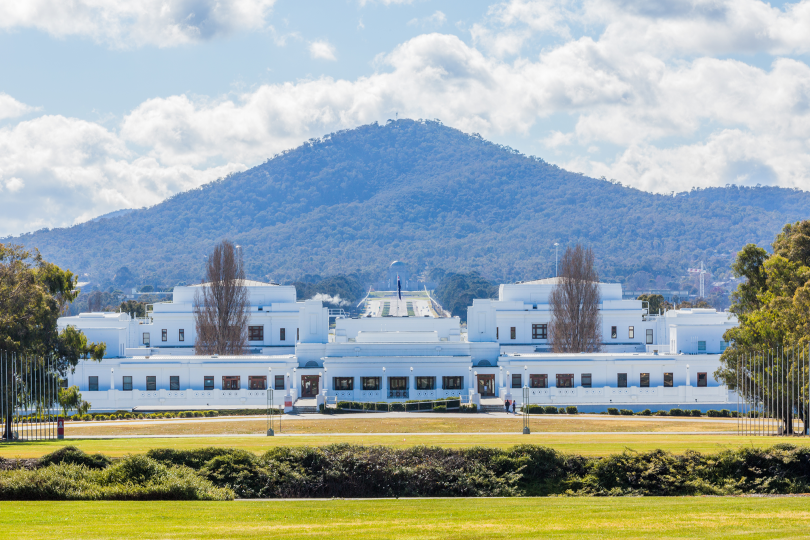
Old Parliament House. $6 million goes to the Australian Electoral Commission to design and install a public exhibition space in the Museum of Australian Democracy and to upgrade the National Electoral Education Centre. Photo: Jack Mohr.
The CPSU said the budget locked in the ASL cap that diminishes the capacity of the public sector to provide the services our community needs, and by 2023-24 the government will slash numbers to a new historic low.
CPSU National Secretary Melissa Donnelly said the budget failed the Australian community which was looking to government and key public sector services in a time of great national crisis.
”Even with the slight increase of 325 extra Services Australia staff, there will be 2,339 or 7 per cent less staff in 2020-21 than when the Coalition was elected,” she said.
“For those hundreds of thousands of Australians directly affected by this crisis, the government’s failure to address public sector capacity means that you will continue to face long call queues when calling Centrelink, more unanswered calls, and longer waits for those small business trying to access support from the ATO.”
She said the government could have boosted jobs for women, young people, and people in regional Australia, and missed a key opportunity by failing to increase the graduate and other entry-level public service jobs.
Mr Barr said it was a budget of missed opportunities, saying tertiary education has been decimated by the COVID-19 pandemic, and the Federal Liberal Government had outlined no clear plan on how they will protect jobs in the education industry.
”This will place further pressure on local institutions as they face lower student enrolments,” he said.
Mr Barr slammed the failure to waive the ACT’s $115 million historic social housing debt going back to self-government, which continued to attract an interest rate of 4.5 per cent.
”It is incomprehensible that the same debt can be waived for Tasmania and not for the ACT. In government, Labor has made it clear that savings from the debt waiver would be reinvested into new social and community housing.”
The Federal Government ignored a welfare sector and construction industry push for more social housing funding.
Mr Barr welcomed the previously announced infrastructure funding but said it would not create many jobs in the next 12 months.
”If re-elected, ACT Labor will work with the Commonwealth to get more details on these projects, and we will work to fast track construction where possible,” he said.













